16 start with W start with W

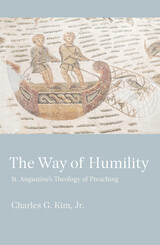
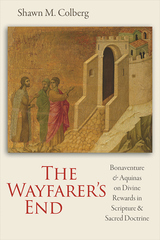
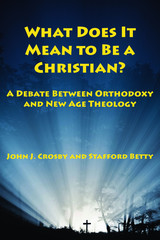
The debate between the two friends is presented here in the form of a correspondence they conducted over a period of two years (and did not originally intend for publication). It has undergone very little editing and revision; the authors have wanted to preserve the spontaneous give and take of their exchange. Together they have produced a work of philosophical dialogue that is unusually fruitful in its ability to clarify some fundamental issues of religion.

Just what is a human being? Who counts? The answers to these questions are crucial when one is faced with the ethical issue of taking human life. In this affirmation of the intrinsic personal dignity and inviolability of every human individual, John Kavanaugh, S. J., denies that it can ever be moral to intentionally kill another.
Today in every corner of the world men and women are willing to kill others in the name of "realism" and under the guise of race, class, quality of life, sex, property, nationalism, security, or religion. We justify these killings by either excluding certain humans from our definition of personhood or by invoking a greater good or more pressing value.
Kavanaugh contends that neither alternative is acceptable. He formulates an ethics that opposes the intentional killing not only of medically "marginal" humans but also of depersonalized or criminalized enemies. Offering a philosophy of the person that embraces the undeveloped, the wounded, and the dying, he proposes ways to recover a personal ethical stance in a global society that increasingly devalues the individual.
Kavanaugh discusses the work of a range of philosophers, artists, and activists from Richard Rorty and Søren Kierkegaard to Albert Camus and Woody Allen, from Mother Teresa to Jack Kevorkian. His approach is in stark contrast to that of writer Peter Singer and others who believe that not all human life has intrinsic moral worth. It will challenge philosophers, students of ethics, and anyone concerned about the depersonalization of contemporary life.
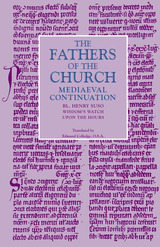
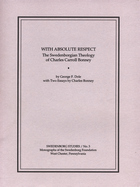
"I was led to feel that all my life had been a preparation for this work; and that in a thousand ways provision had been made for its extraordinary needs." So wrote Charles Carroll Bonney, a Chicago lawyer, of his work in organizing the first Parliament of World's Religions in 1893. In this short work, George F. Dole examines Bonney's theology and personal beliefs, which were inspired by Emanuel Swedenborg (1688-1772).
Also included in this volume are two essays by Bonney himself, "The Genesis of the World's Religious Congresses of 1893" and "A World's Congress at the World's Fair."

Witness and Existence pays tribute to Ogden by bringing together essays by eminent scholars in New Testament studies and philosophical theology, two fields which directly reflect his methodological concerns and his substantive contributions. The book honors Ogden precisely by engaging the fundamental issues which Ogden himself has taken so seriously.
The first group of essays presents careful analyses of issues basic to the early Christian witness; the second group examines the credibility of the Christian claim about God in terms of human experience. The editors' introductory essay provides the first comprehensive analysis yet to appear of Ogden's theology. A complete bibliography of his published writings is included as an appendix.
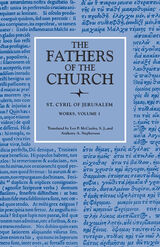
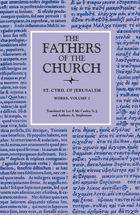

On November 10, 2017, Pope Francis became the first pontiff in the nuclear era to take a complete stand against nuclear weapons, even as a form of deterrence. At a Vatican conference of leaders in the field of disarmament, he made it clear that the possession of the bomb itself was immoral. A World Free from Nuclear Weapons presents the pope’s address and original testimony from Nobel Peace Prize laureates, religious leaders, diplomats, and civil society activists.
These luminaries, which include the pope and a Hiroshima survivor, make the moral case against possessing, manufacturing, and deploying nuclear arms. Drew Christiansen, a member of the Holy See delegation to the 2017 United Nations conference that negotiated the Treaty to Prohibit Nuclear Weapons, helps readers to understand this conference in its historical context.
A World Free from Nuclear Weapons is a critical companion for scholars of modern Catholicism, moral theology, and peace studies, as well as policymakers working on effective disarmament. It shows how the Church’s revised position presents an opportunity for global leaders to connect disarmament to larger movements for peace, pointing toward future action.
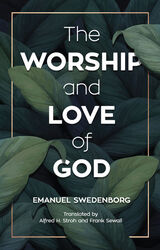
This allegorical retelling of the biblical creation story blends science, poetic understanding, and the spiritual revelations of Swedish visionary Emanuel Swedenborg (1688–1772). Starting with the creation of the earth from the substance of the universe, Swedenborg takes the reader through the formation of plants, animals, and finally human beings. He puts particular emphasis on the spiritual nature of Adam and Adam’s marriage to Eve. Although not considered one of Swedenborg’s theological works, this book was written just prior to his visionary period and contains the seeds of many of his later ideas, particularly the biblical commentary in Secrets of Heaven. This edition is a reprint of a 1914 English translation by Alfred H. Stroh and Frank Sewall.

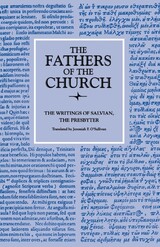

Nicholas of Cusa (1401–1464), widely considered the most important original philosopher of the Renaissance, was born in Kues on the Moselle River. A polymath who studied canon law and became a cardinal of the Roman Catholic Church, he wrote principally on speculative theology, philosophy, and church politics. As a political thinker he is best known for De concordantia catholica, which presented a blueprint for peace in an age of ecclesiastical discord.
This volume makes most of Nicholas’s other writings on Church and reform available in English for the first time, including legal tracts arguing the case of Pope Eugenius IV against the conciliarists, theological examinations of the nature of the Church, and writings on reform of the papacy and curia. Among the works translated are an early draft of De concordantia catholica and the Letter to Rodrigo Sanchez de Arevalo, which discusses the Church in light of the Cusan idea of “learned ignorance.”
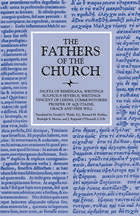
READERS
Browse our collection.
PUBLISHERS
See BiblioVault's publisher services.
STUDENT SERVICES
Files for college accessibility offices.
UChicago Accessibility Resources
home | accessibility | search | about | contact us
BiblioVault ® 2001 - 2024
The University of Chicago Press









